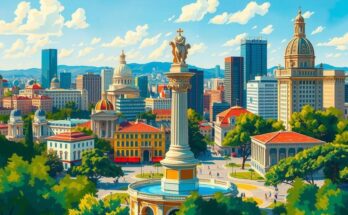The Burundian government has escalated restrictions on civil society and media, maintaining a climate of fear ahead of upcoming elections. Economic conditions worsen with high inflation and poverty, impacting fundamental rights and services. Political control by the ruling party and violence against journalists and vulnerable groups remain prevalent. Tensions with neighboring Rwanda further exacerbate the situation as calls for accountability grow amidst ongoing human rights violations.
In the past year, the Burundian government has intensified restrictions on civil society, independent media, and political opposition, amidst a worsening security environment. Human rights violations, particularly in the lead-up to the 2025 legislative and municipal elections, remain prevalent, with instances of enforced disappearances and arbitrary arrests…
Burundi faces severe economic hardship, with inflation rates reaching 26 percent and over half the population living in poverty according to the United Nations. The population experiences critical shortages of fuel, water, and frequent electricity outages, adversely affecting essential public services such as health and education.
The CNDD-FDD party maintains strict control over governmental institutions, aided by the SNR and the Imbonerakure youth league. This auxiliary group has been implicated in various abuses, including physical assaults on perceived political opponents. Hate speech and inflammatory rhetoric have increased among political leaders, contributing to a hostile environment for dissent.
A newly adopted electoral code mandates exorbitant registration fees for candidates, significantly impeding citizens’ ability to contest elections. A provision requiring political party switchers to wait two years before running as independents directly impacts Agathon Rwasa, the last notable opposition leader.
The year has seen ongoing threats against journalists and human rights advocates. Although President granted a pardon to journalist Floriane Irangabiye, arbitrary detentions persist, exemplified by Sandra Muhoza’s continued incarceration. Indeed, the media landscape in Burundi remains dangerous, with harassment and physical assaults against journalists intensifying.
Women and children’s rights have not improved, as authorities fail to address rampant gender-based violence and related issues, such as child marriage. Recent governmental actions have forcibly evicted cohabiting couples, contravening legal norms, allegedly under the guise of enforcing “moral and Christian order.”
Following increased violent incidents attributed to the RED-Tabara armed group, security in border areas has deteriorated. These attacks have led to significant political tension between Burundi and Rwanda, further aggravated by mutual accusations of support for armed groups.
The UN Human Rights Council has renewed the special rapporteur’s mandate on Burundi, amidst ongoing governmental noncompliance with human rights obligations. The CNIDH’s lack of autonomy hampers national accountability, while the ICC’s investigation into crimes against humanity from Burundi’s 2015 crisis continues. Furthermore, recent rhetoric from the president has incited violence against LGBTQ+ individuals, showcasing the ongoing discrimination within the state.
The report highlights the serious human rights violations occurring in Burundi, particularly as the country approaches the 2025 elections. Political repression, economic instability, and the deterioration of civil liberties contribute to the overall precarious human rights landscape. The international community must continue to monitor these trends and support efforts for accountability and reform.
Original Source: www.hrw.org




